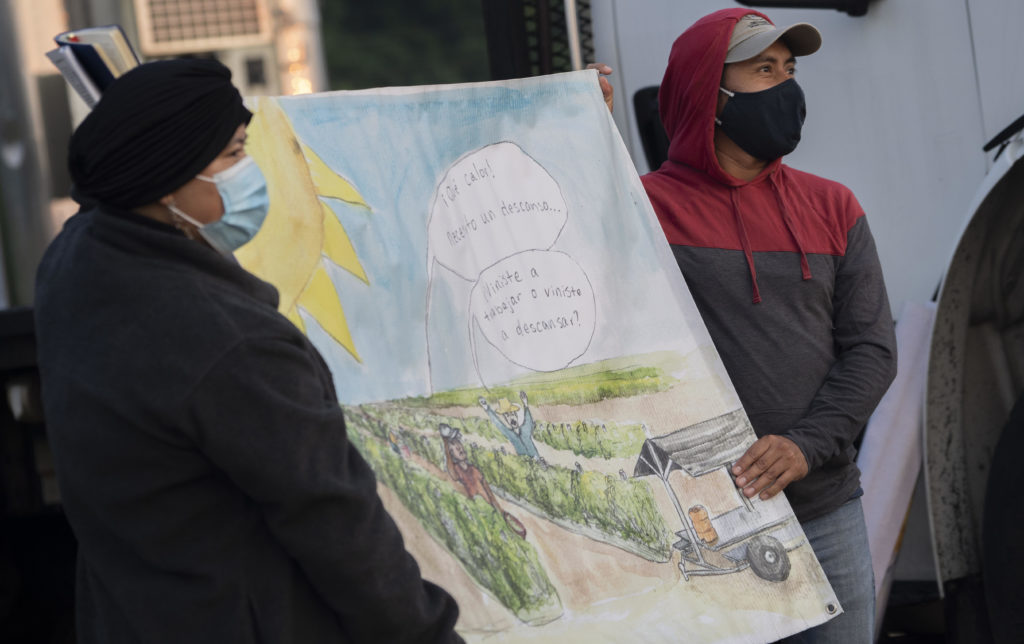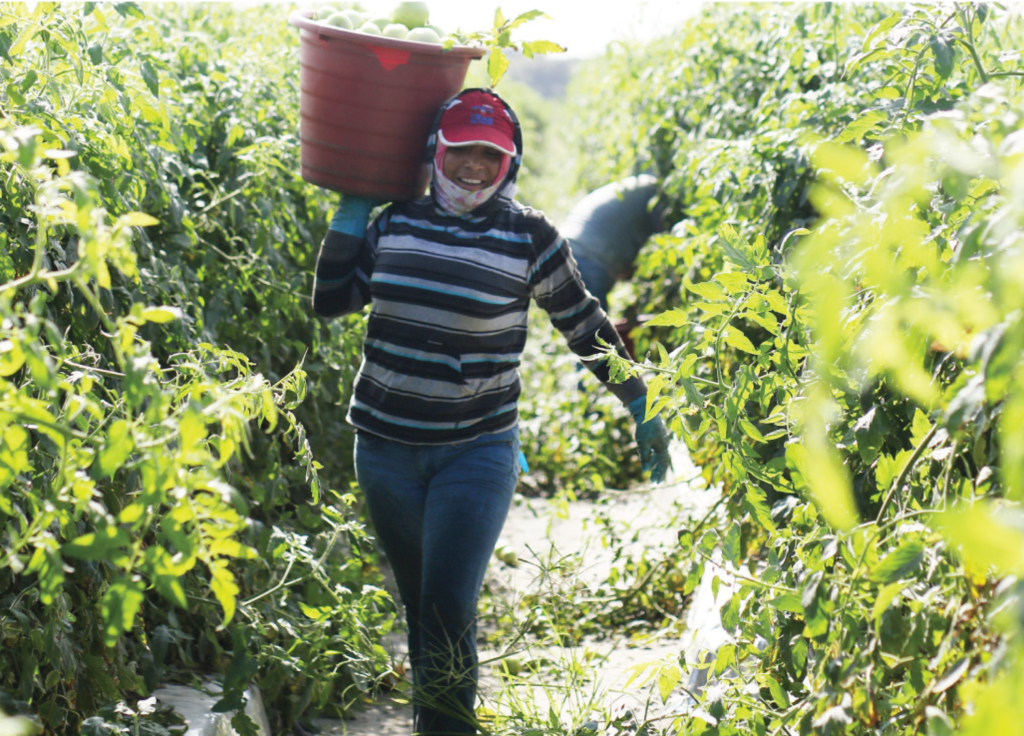Editor’s Note: This guest blog from a Free the Slaves advocacy partner in the Alliance to End Slavery and Trafficking highlights how a key program to fight modern slavery in American agriculture has moved from a theory of change to a proven solution.
The Coalition of Immokalee Workers (CIW) has been a leader in the fight against modern-day slavery in the United States since the early 1990s, uncovering, investigating, and assisting in the prosecution of numerous farm slavery operations across the Southeastern U.S. The State Department has called the CIW a “pioneer” in the worker-centered and multi-sectoral approach to slavery prosecution and hailed the CIW’s work on some of the earliest cases of slavery as a “spark” that ignited today’s national anti-slavery movement.
We know prosecution is an important tool, and justice for harm done is essential. But we also know that true progress on human rights means creating conditions where the crimes do not happen in the first place. That is why, when we launched the Fair Food Program in 2011, we had a more ambitious goal in mind: prevention.
As farmworkers with the CIW contemplated what it would take to secure dignity and safety in the fields, they realized that the same market power that had been responsible for the downward pressure on their wages and working conditions could be harnessed for good. By educating and engaging with consumers and other allies, farmworkers could “flip the script,” and hold large-scale produce retailers accountable for improving the conditions in their supply chains.
Ten years later, this theory of change has proven true.
The Fair Food Program is built around an innovative, self-reinforcing combination of mechanisms that include worker-to-worker education, a 24/7 trilingual hotline, and comprehensive field and office audits by a dedicated third-party monitoring organization. Workers are empowered as monitors of their own human rights and Participating Growers in the Program are held to a wide-ranging, worker-driven Code of Conduct that includes a zero-tolerance policy for forced labor and a direct-hire requirement that removes farm labor contractors, traditionally the perpetrators of forced labor, from the employment equation. The code also covers wage theft, retaliation, sexual harassment, and health and safety (including, most recently, groundbreaking protocols for the prevention of COVID-19 and heat stress).

Farmworker education sign. The worker is saying, “Oh it’s so hot! I need a break!” And the boss is saying, “Did you come here to work or did you come here to rest?”
But while all of these elements of the program are essential, the factor that makes the Fair Food Program unique in its impact is market-based enforcement. Participating buyers sign legally binding agreements that require them to cut off purchases from farms that have been suspended from the Fair Food Program.
The program has expanded dramatically since 2011 and is now present in eight states and multiple crops, most recently adding new partners in cut flowers and sweet potatoes. Chilling headlines about farmworkers being forced to work against their will, dying on the job, or being assaulted in the fields, only make our work to expand the program more urgent. Fair Food Program hotline staff also receive calls for help from workers on non-Fair Food Program farms, an ever-present reminder that the conditions that enable modern slavery in the fields still have not changed for the majority of farmworkers across the country—and, in fact, have only increased under the pressure of the COVID-19 pandemic. Even today, the CIW’s Anti-Slavery Program continues to uncover and investigate cases of forced labor outside the program.
Consumers have been an essential ally, and have joined farmworkers in our calls for major food retailers to join the program and uphold human rights. So far, 14 major retailers have joined, including some of the biggest names in fast food, food service, and supermarkets (with the notable exceptions of Publix, Kroger, and Wendy’s). Their extraordinary market power has helped transform tens of thousands of farmworkers’ lives.
Now we’ve begun to hear from customers and owners of smaller stores and co-ops who want to find a way for their favorite ethical retailers to contribute to that unprecedented transformation, even without the same market power wielded by large buyers of produce.
Two years ago, we launched a new pathway for the Fair Food Program to answer that call – the Fair Food Sponsor Program – and we’re expanding our efforts by inviting consumers to help us identify co-ops, independent grocery stores, small restaurants, and even chefs who share the values of the Fair Food Program and want to support its expansion. Participation in the Fair Food Sponsor Program involves an annual support payment that both combats economic insecurity for farmworkers and helps fund Fair Food monitoring, as well as a commitment to consumer education and sourcing FFP produce whenever possible. Our goal for the Sponsor Program is to build a strong network of smaller, ethical food partners across the country and to build consumer awareness and demand for Fair Food, which will help us expand the FFP’s vital protections to thousands of more farmworkers from Florida to California.

Fair Food Program worker in Florida
Farmworkers began this journey with a theory of change – and 10 years later, we have the evidence that the program is working, preventing the unchecked abuse that has plagued agriculture for centuries. As we seed our expansion efforts by making “Fair Food” a household name, we invite friends of Free the Slaves to join us!



